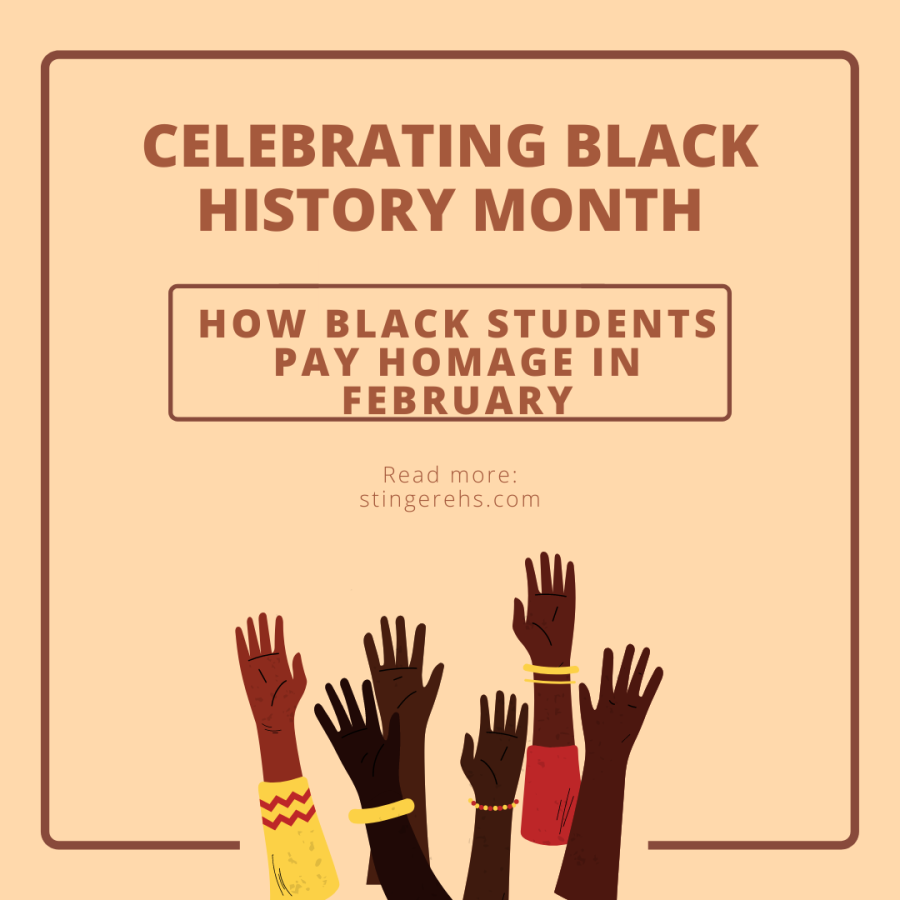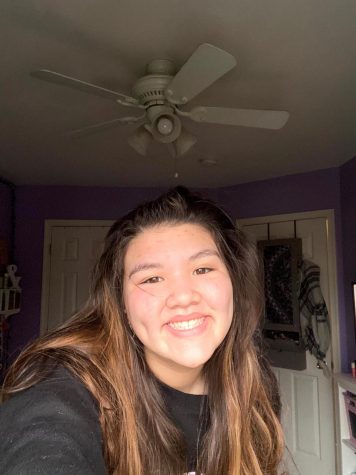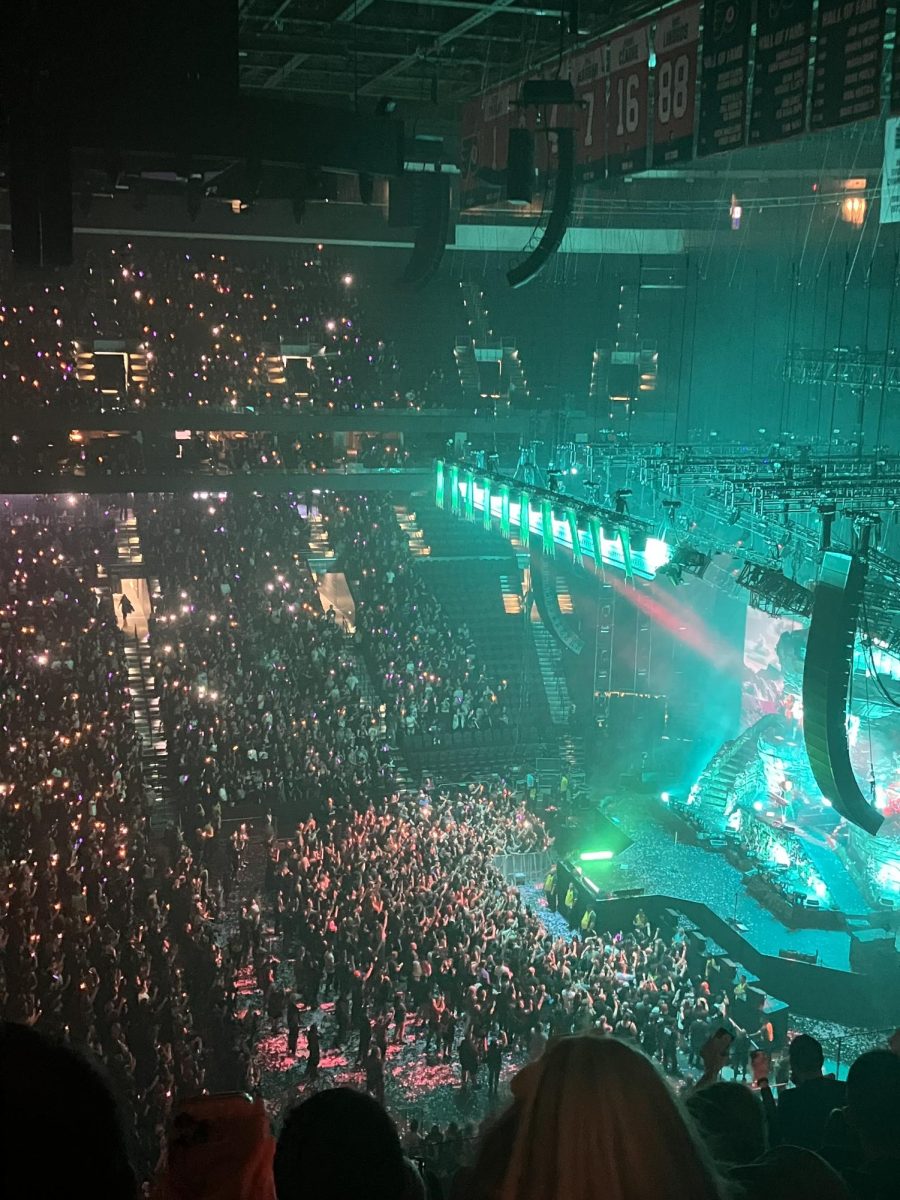Celebrating Black history: How Black students pay homage to heritage in February
Feb 24, 2022
This previously ran in our February 2022 print issue.
“If you never see someone who looks like you filling any type of position of power or being a model of greatness, how can you see that within yourself?”
Sydne Clarke, president of the Black Student Union (BSU), co-president of Students Organizing Against Racism (SOAR), and vice president of the Young Democrats Club, is only 18 years old and already changing her community for the better as an advocate for Black voices.
Black History Month is time that celebrates African American achievements throughout history and in modern life. The event started in 1926 by Carter G. Woodson, taking the form of only a week in February, which was later extended to fill a full month. Now, nearly a hundred years later, this month is still celebrated by many people, including Clarke.
“First of all, I think every month should be black history month,” Clarke said. “But, you know, since we don’t have [that], I just feel like it’s really important to showcase Black voices and Black history — like full Black history in all forms — since it’s something that’s not represented unfortunately in our day-to-day life throughout the educational system. It feels great to have a month that’s dedicated to [us].”
Sophomore Brassy Ford believes that the celebration of Black history should not only be contained to the month, however it offers her a chance to celebrate her identity in its fullest form.
“You can express and embrace yourself because, especially when you go to a predominantly white school, you don’t really have the chance to embrace the most important part of you,” Ford said.
Seeing figures like Colin Kapernick and Tomi Adeyemi make great strides in the fight for equality allows someone such as Clarke to see themselves in their actions.
“Representation in all of its forms is very important,” Clarke said. “It really shows youth, and just people in general, that they can aspire to be — or they can be, not even aspire, just plain out be–great. If they see models of representation, like if you see someone who looks like you achieving big things, it kind of gives you a sense that ‘woah I can do that too.’”
While some people associate this Black History Month with mourning and tend to focus on the bad things of the past, Clarke takes a more positive approach to the month. Rather than thinking of the tragedies of Black history, she chooses to focus on what the future holds, and those figures who created a world where Black Americans could flourish.
“This is a month to me I think just a month of celebration. While [tragedy] is an important part of our history that we definitely need to talk about and recognize, it’s not what we are. We’ve dealt with adversity and trials and tribulations throughout centuries and we’re still dealing with those issues to this day, but our history is so rich, it’s just so beautiful overall.”
Ford takes the same position, noting that the month of February is a time to acknowledge the past and use that to change the way the present, as the same topics of racism and injustice that were fought against still prevail.
“We don’t have freedom, but it could have been worse,” Ford said. “It’s progressed, but it’s not nearly where it’s supposed to be, and that’s why we’re here today… When they talk about it [racism], they act like racism surrounds just slavery, but it’s in our community, it’s in our school, it’s everywhere.”
Clarke notes that the celebrations of Black History Month continue to enrich her life, opening her eyes to new history each year.
“It’s also a month of learning, for myself even. Even though I am a woman of color, there is so much of my history that I’m still not privy to that I’m always taking time to learn,” Clarke said. “I think this month is a month of learning and celebration and reflection.”
Sophomore Elizabeth “Tami” Adesanya wants to see the school implement more programs to acknowledge Black History Month, and be shown the same amount of attention as other programs in the school.
“Our school really doesn’t rep for [Black History Month] like how they were talking about Safe2Say or drug addiction, and what they do is like a simple two minute video in advisory, and it’s very similar: Martin Luther King or Rosa Parks, ” Adesanya said. “It would be awesome for them to know you don’t only celebrate Black people and their culture and their history in Black History Month. You can do it any time — and you should all the time — just like how they teach us about the Boston Tea Party every year.”
Clarke feels it is important to take steps to learn about history, even if it means stepping out of the comfort zone.
“I feel like people are afraid to ask questions, because they don’t want to come off offensive, but everyone has learning to do,” Clarke said. “If you want to learn history, look into whatever aspect of Black history that you want to. Do some deep dives. I think that students should understand this is not necessarily a month of mourning, it’s something positive. Black history is just so complex, it’s so diverse. They should also just be cognizant, even though there is a month dedicated to it, it’s also the shortest month.”
Black history is still being written, the fight for justice and equality in America continues day after day, with no foreseeable end. While students continue to push for changes and awareness to social issues, the celebration of Black History Month serves as a time to reflect on the past, but continue to look toward the future.
“It’s not like we’re celebrating Black people, but more of their history and what they’ve been through and how much sacrifices we had to do in the past 400 years,” Ford said.
Adesanya agrees, and notes that the difference between everybody should not be ignored, but embraced.
She said, “Educating yourself is really one of the only things you can do, and just being aware that there are differences between us. We’re not all the same as much as we want to believe we are.”













